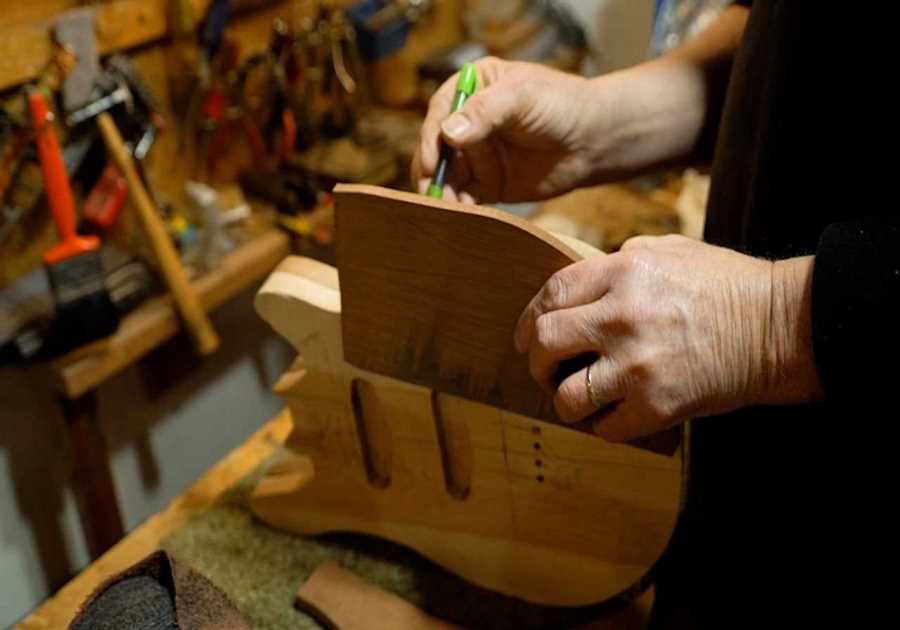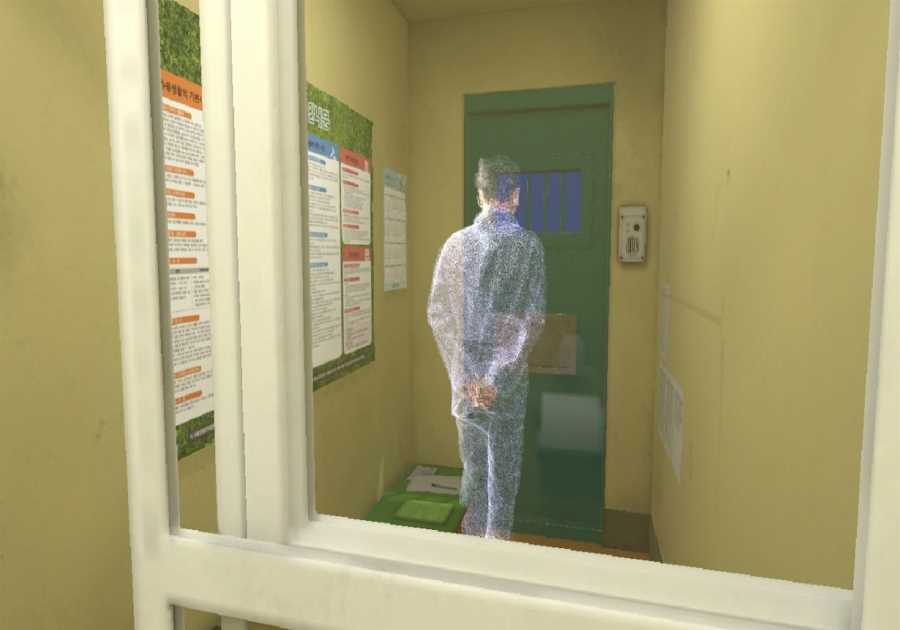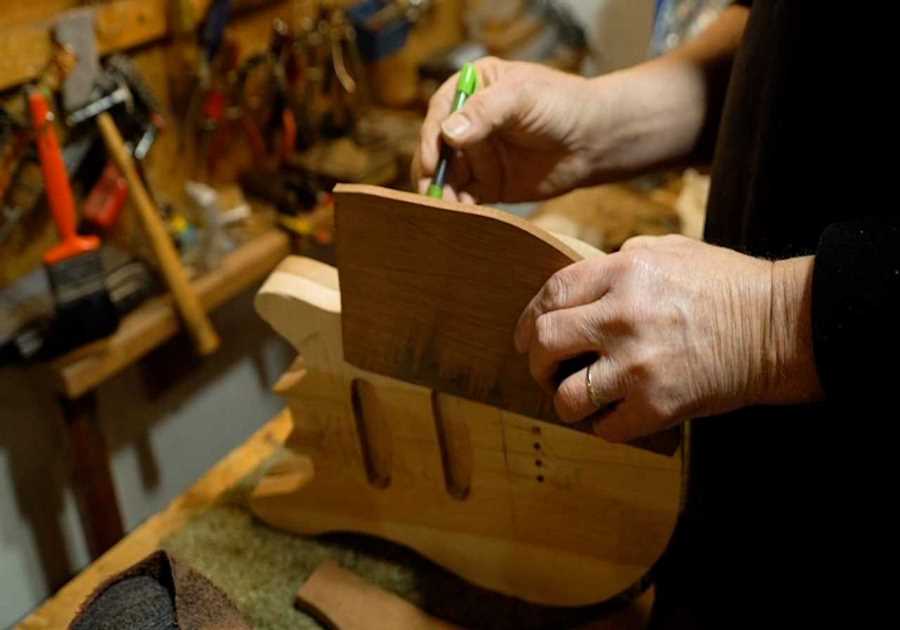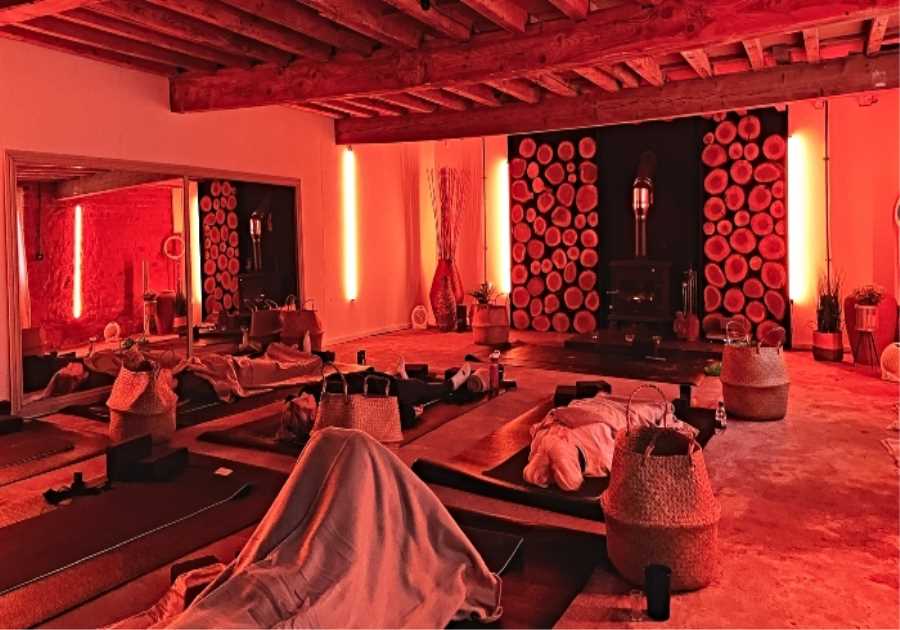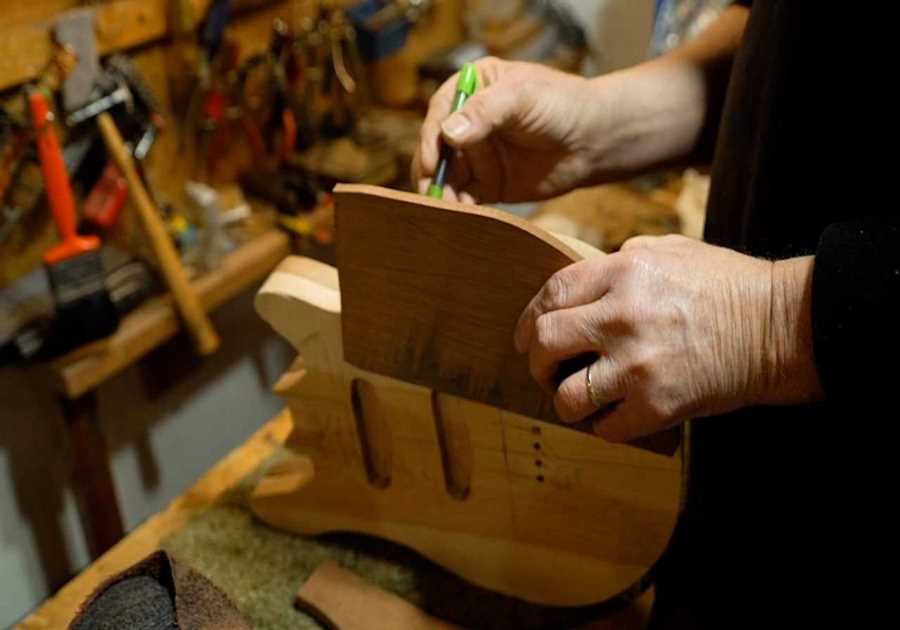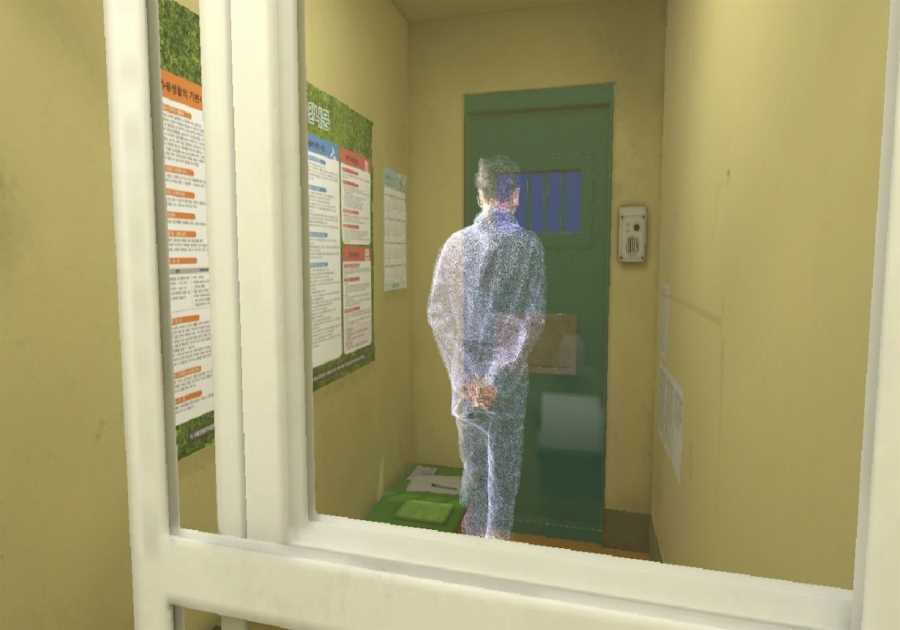San Jose State assistant head football coach Alonzo Carter is making moves that would make MC Hammer, whom he performed with in the 1990s, very proud. What Carter has done, hosting Zoom conference calls for hundreds of coaches, has changed the trajectory of many careers and lives.
“The Zooms have helped me a lot,” University of Washington special teams quality control analyst Chili Davis said. “It truly helped me in two parts. Being professional for the interview process and things like that, then also being able to handle a lot of the things that go along with the job once you get it.”
Davis is one of more than 25 coaches who Carter says he has assisted in advancing their careers. Before moving to Washington, Davis was the inside receivers and assistant special teams coordinator at New Mexico State. To help prepare Davis for a position at Washington, Carter conducted mock interviews with him.
Other coaches who have been able to advance their careers because of Carter include cornerbacks assistant coach at Cal Poly Jeffery Anderson, Southern Utah cornerbacks coach Patrick Henderson, North Carolina Central assistant coach Isaac Williams, Contra Costa College head coach Otis Yelverton, Texas Southern running backs coach Khenon Hall and Tennessee State offensive line graduate assistant coach Jalen Samuel.
Several coaches describe Carter as the perfect man to facilitate calls of this magnitude because of his dedication to seeing his peers advance.
Rhoden Fellows, Class of 2021Read now
“I think he’s a leader of men,” said Hue Jackson, who was recently hired as Grambling State’s new head coach. “I think he has those characteristics. I think he’s very transparent. He says what’s on his mind. He calls it like he sees it and I think that’s real for coaches because we don’t get a lot of that sometimes. Sometimes, we don’t have people that are very upfront and honest and we don’t have a lot of people that really bring minority coaches together. I think he stepped into the space that I think was needed at the time.”
Carter’s weekly presentation topics began with telling inspirational stories about how entertainers such as Steve Harvey, Denzel Washington and Sean “Diddy” Combs excelled in their careers. The presentations went to another level when he started a running back coaches group, an idea he got from University of Utah running backs coach Kiel McDonald. His group was made up of various coaches, including Texas A&M’s Tommie Robinson and University of Louisiana at Lafayette’s Jabbar JuLuke.
“I was really like, man, I am against giants right now,” Carter said. “We were talking ball, showing videos, sharing stuff. I’m like, ‘Oh, man, this is just so cool.’ I remember saying to myself everyone on here is Black. Then I said to myself that this would be my presentation to the group on Friday.”
After being a participant on a call facilitated by McDonald and reporting back to his coaches at SJSU about the experiences, he had an epiphany: each of these coaches had the potential to be an offensive coordinator.
“All of these coaches on here and not one of them is a coordinator or head coach,” Carter said. “And everyone was Black. How are we the ones talking and we’re the ones out here recruiting the better players at our different universities, but none of us are coordinators and none of us are head coaches? So, that’s when it hit me. I said, you know what? I’m going to make my own group, but mine is not going to be about X’s and O’s. We ain’t talking no ball. We are not sharing any screens. They love to share screens on Zoom, that’s just what you do but no, we are going to talk about the game within the game. How can we help each other be better?”
“I said, you know what? I’m going to make my own group, but mine is not going to be about X’s and O’s. We ain’t talking no ball. We are not sharing any screens. They love to share screens on Zoom, that’s just what you do but no, we are going to talk about the game within the game. How can we help each other be better?”
San Jose State assistant head coach Alonzo Carter
When brainstorming on how to bring the Zoom calls to life, Carter wanted to begin with Black assistants who coach running backs, wide receivers and defensive backs, because he believes those are the positions Black coaches predominantly get hired for. He wanted to create a unique dialogue about the challenges they face.
Initially, the format didn’t allow coaches to talk freely. After the first call in March 2020, University of California-Berkeley’s Keith Heyward, Oregon State’s Kefense Hynson and University of Washington’s Junior Adams became Carter’s team for elevating the calls.
“One of the issues with our profession is that at times, we can get a little disconnected in terms of who the up-and-coming coaches are,” Hynson said. “We don’t get a lot of opportunities and so, when we get them it’d be nice to help each other out and build a network and set up some pipelines, and so we really just wanted to create a space to help coaches get better at the profession and also introduce guys to other guys. If I get a coordinator job here and know a young brother over here, it can help connect us.”
Carter’s second Zoom call consisted of coaches who had been relieved of their duties at their respective universities. Carter explained there was beauty in their struggle and recovery. Some of the coaches who shared their stories were Ron Gould, former University of California-Davis head coach and current running backs coach at Stanford, and DeWayne Walker, former New Mexico State head coach and current defensive backs coach at the University of Arizona.
“I remember Ron Gould being so transparent about things he could have done differently when he was at UC Davis and DeWayne Walker when we was at New Mexico State,” Carter said. “These guys were so open and transparent about things they could have done differently and telling us not to make the same mistakes. If you’re coming from a Power 5 program but now you’re an FCS coach, you do not have the same resources. It is easy to get confused and not appreciate the resources you have.”
To increase attendance on the calls, Carter started a Microsoft Excel spreadsheet and documented all the coaching contacts he had. He also asked Heyward, Hynson and Adams to add to the sheet. Carter’s initial goal was to have 100 coaches on weekly calls. Eventually, he would have more than 8,700 logins from April 2020 to June of this year.
Early on, the calls were held every Thursday at 7 p.m. PT. Later, Sunday nights were added. Some of the topics included coaching in the NFL, Black offensive line coaches, minority coordinators, media day, historically Black college and university (HBCU) Sunday, ladies night, athletic directors and strength and condition coaches.
Carter’s Zoom plan only allowed him to have 300 people on at once. By the fifth Zoom, he had people in the virtual waiting room. He was receiving texts and calls from a large number of coaches explaining how they were not able to log on.
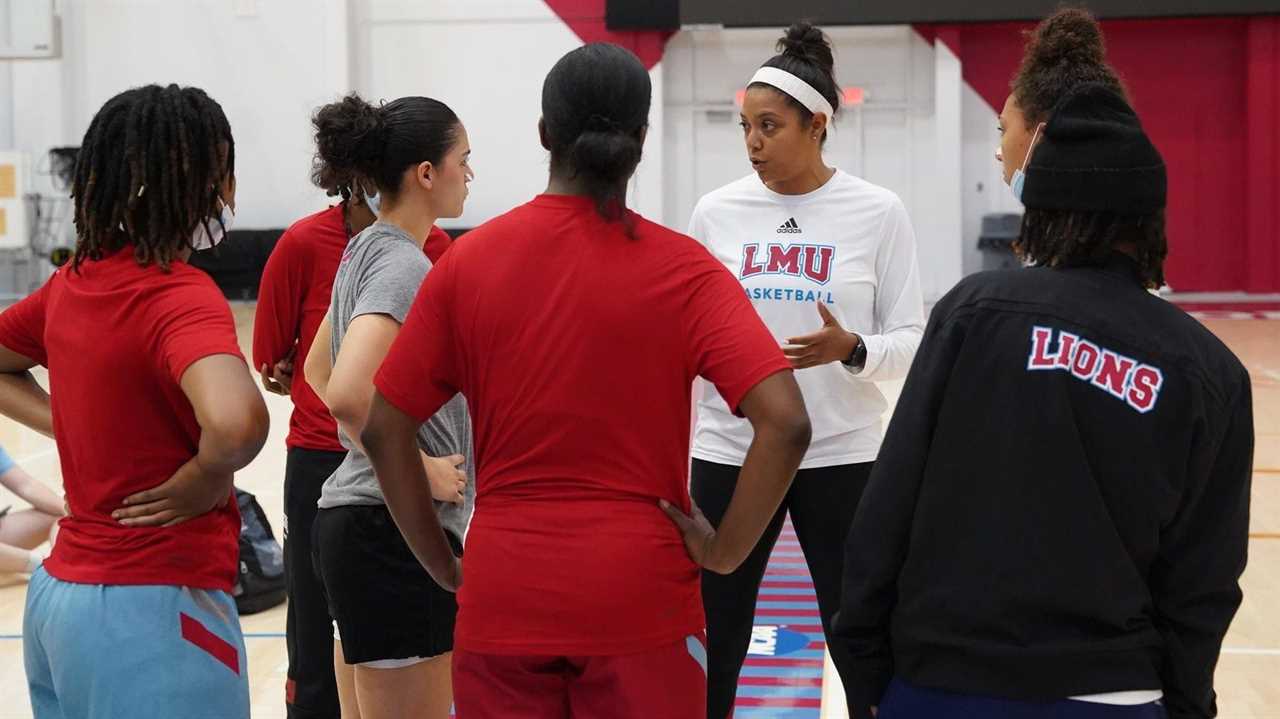
Renaissance Search & Consulting at forefront of diversifying hiring of college coachesRead now
Carter’s calls strictly grew through word of mouth. He never did any type of formal advertising. In May 2020, he spoke with his wife about upgrading his Zoom package. Carter refers to his wife as the executive producer of the calls.
The panel of coaches who originally brought out the large crowd was Florida Atlantic head coach Willie Taggart, Colorado head coach Karl Dorrell, Brigham Young University head coach Kalani Sitake and former Washington head coach Jimmy Lake.
“I was very impressed at the number of guys that were on the call,” Taggart said. “There was so much learning going on and each week it was something different. It’s pretty cool getting on there and seeing so many coaches on there and trying to get information. I haven’t seen a forum like that to be able to allow this. It wasn’t really like a clinic. You were able to get on there and get real information. For young coaches that aspire to be college coaches one day, it gives them hope to believe that they are on the right path.”
The West Coast Zoom Clinic was almost forced to change its name once the calls began to include East Coast coaches. Carter was approached by head football coach Edward Washington of Castlemont High School in Oakland, California, about HBCU Sunday.
“He [Washington] said to me, ‘It’s a shame that they do not recruit on the West Coast,’ ” Carter said. “I said to him, ‘Well, what if they do not have the means or resources or finances to do that?’ So, I said, ‘Why don’t I just create a Zoom call and bring them all to you.’ ”
Carter was able to gather all but one of the coaches in the Mid-Eastern Athletic Conference and Southwestern Athletic Conference for Washington. Florida A&M head coach Willie Simmons, Bethune-Cookman head coach Terry Sims and Howard University head coach Larry Scott were among those who contributed to the seven-hour Zoom conversation that Sunday. This meant the call went well past 2 a.m. ET.
“One of the biggest takeaways was really opening a lot of the coaches’ eyes to one, the level of play the Division I HBCUs are on. There’s a big misconception that all HBCUs are in the same division, whether that be Division II or whatever. We were able to dispel that myth that there are Division I HBCU conferences,” Carter said. “The second thing was just to see successful Black coaches lead their programs. We talked about the impact we have on our schools and our community and now other young men are considering being head coaches at HBCUs.”
Carter knew the majority of the coaches in his network aspired to coach in the NFL.
Eventually, he got Los Angeles Chargers former assistant coach George Stewart, Washington Football Team assistant defensive backs coach Richard Rodgers, Minnesota Vikings defensive line coach Andre Patterson and others on a Zoom call.
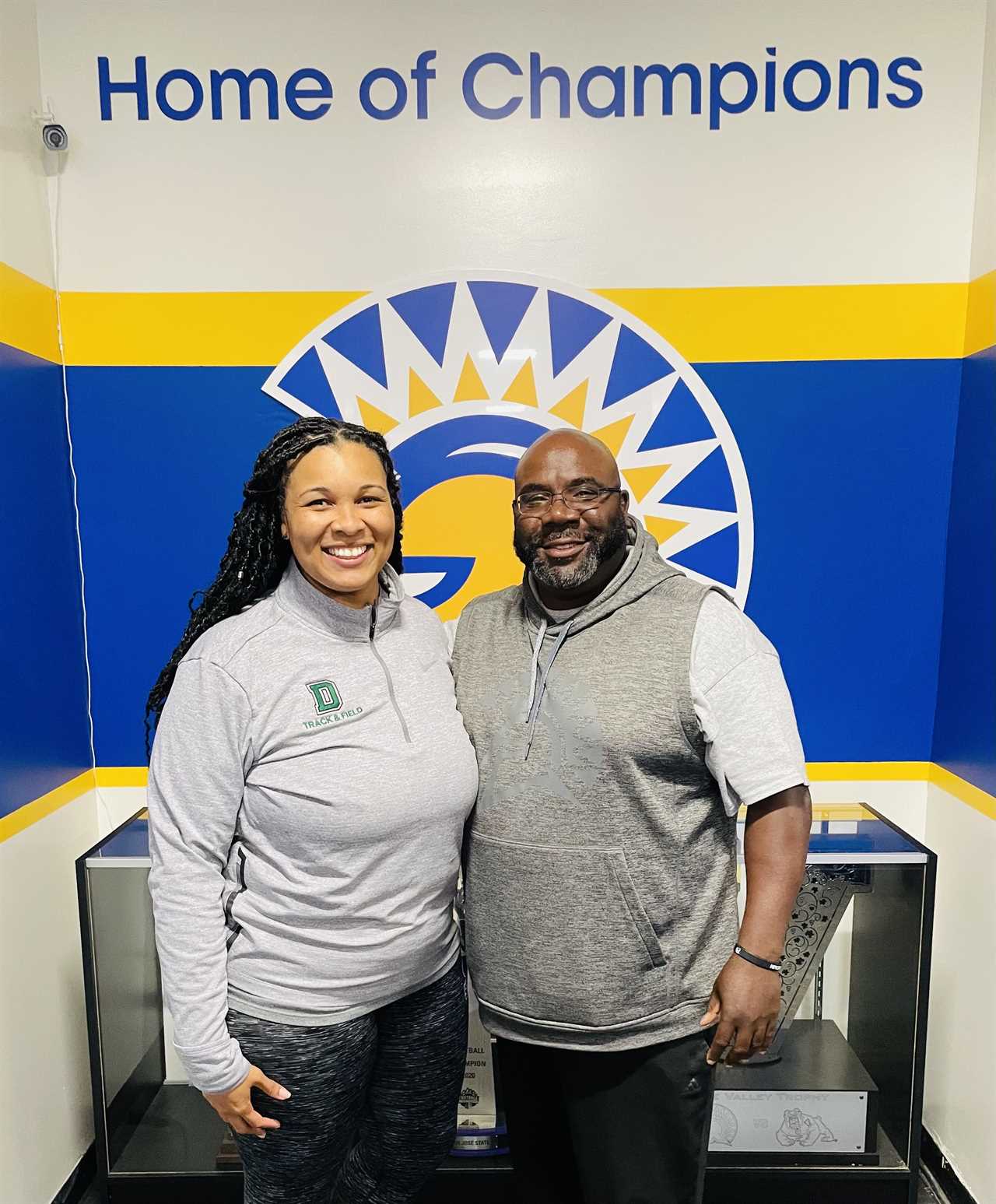
Alonzo Carter (right) with senior associate athletic director for varsity sports at Dartmouth College, Tiffani-Dawn Sykes (left).
Alonzo Carter
Then came ladies’ night. Dartmouth College defensive assistant Mickey Grace originally caught Carter’s attention due to her attendance week after week. Carter said she commanded the room once she was given the chance to come off mute.
“I’ve networked so much just because of that Zoom call,” Grace said. “Everyone puts their contact information in the message board. I had been there for weeks before he knew I was there. We had a nice guest speaker on and I asked a question that was apparently a really great question. Someone reached out to me for the scouting apprenticeship role at the LA Rams. Then I went through the whole interview process for that. I got to have some visibility to people that wouldn’t have known I existed otherwise without the Zoom. We try not to say male dominated, we say male prevalent. We’re trying to force their hand to change it because none of us feel dominated.”
In addition to Grace, Tampa Bay Buccaneers assistant defensive line coach Lori Locust and Washington Football Team assistant running backs coach Jennifer King were among other female coaches who made appearances on the calls.
“Coaching is a relationship business,” King said. “I thought it was dope. I had a moment to share a bit about me. It was really cool. I actually got a chance to kind of present on one of the calls, which was special. A lot of the guys in football are more than open to having women involved as long as you can do the job.”
Tiffani-Dawn Sykes, senior associate athletic director for varsity sports at Dartmouth, says she aspires to be an athletic director, and the relationships she’s made through the Zooms have been a real benefit. She’s been able to share what universities look for when hiring coaches on the administrative end while also gaining knowledge from the coaches about their day-to-day experiences.
“It meant the world to me that he would allow me to participate and welcome me,” Sykes said. “Even when I am not a panelist, he lets me be a panelist. Sometimes a coach or someone will ask a question and I’ll jump in and answer and he’ll just kind of tease me and say, ‘OK, boss lady, you have the floor.’ I’m a Black woman at an Ivy League institution. I do not take that for granted.”
In October 2020, Carter won the Zoomtopia Award for Innovation in the category “Emphasis on Diversity: Bridging the Divide.”
The last Zoom calls were held in June. Carter is looking to bring them back once his participants’ seasons are less busy. Carter is also an executive board member of the National Coalition of Minority Football Coaches, founded by University of Maryland head football coach Mike Locksley. The coalition is aiming to sponsor the relaunch of the calls in February 2022.
A different way to inspire players
Carter’s MC Hammer dance moves have gotten him plenty of attention off the playing field. He’s been on various TV news programs over the years and was even on The Ellen DeGeneres Show.
His curiosity led him to dancing at an Oakland club in 1989 during MC Hammer’s “Let’s Get It Started” music video. Afterward, he took a Greyhound bus to Los Angeles and danced in Hammer’s “Turn This Mutha Out” video. After three years of playing football with no scholarship at Cal State East Bay, this was the change of pace he’d sought.
While on tour with Hammer from 1989 to 1991, Carter received his first introduction to coaching. Lloyd Johnson was the head of security for Hammer while also coaching junior varsity football at John C. Fremont High School in South Los Angeles.
“He [Johnson] used to ask me about plays,” Carter said. “And I said, ‘Wait a minute, you’re coaching?’ If he’s a coach, I know I can be a coach. I felt like if Lloyd can do it, then I can do it. I was doing all this stuff with Hammer but I still wanted to go back into my community to coach in West Oakland.”
Hammer went on to win numerous awards. Carter’s last performance with MC Hammer and his Ho Frat Ho crew was at the 1991 Grammys. The gig was meant to be solely a summer job. Once the summer ended, Carter was faced with a choice to continue his dancing career or suit back up for Cal State in the fall.
When he returned from being on tour, he was met with the harsh reality of his home being boarded up and his mother suffering from severe drug addiction.
Despite this heartbreak, he wanted to keep a vow that he had made to himself to help his community. He was set to begin as a volunteer coach at McClymonds High School, where he played football and ran track.
“I had on leather boots, leather pants and a Rolex chain,” Carter said. “I pulled up to the first day of practice in a 1987 drop-top burgundy Corvette with peanut butter interior that Hammer gifted me. Everyone looked at me like, ‘Who is this guy? Where are you from?’ I’m from here. And they said, ‘No way, not looking like that.’ The players were laughing at me, but I had been so far removed with being on tour and that’s what you become. That’s why it’s so important to go back and give back.”
Carter became head coach at McClymonds, where he won East Bay Coach of the Year in 2001, 2005 and 2006. He also won the Oakland Section title eight times. Berkeley (California) High School took notice of Carter’s style of coaching and offered him the same job in 2007.
He hesitated to take the position because it was going to be a rebuilding job. Yet, he took on the new role and created the same winning program for Berkeley and brought home a league championship three times.
He then became the head coach at Contra Costa from 2010 to 2016. Carter wanted to coach at the next level but needed to complete his degree. He graduated with an associate degree from Contra Costa and returned to Cal State to get a bachelor’s degree in African American studies in December 2016.
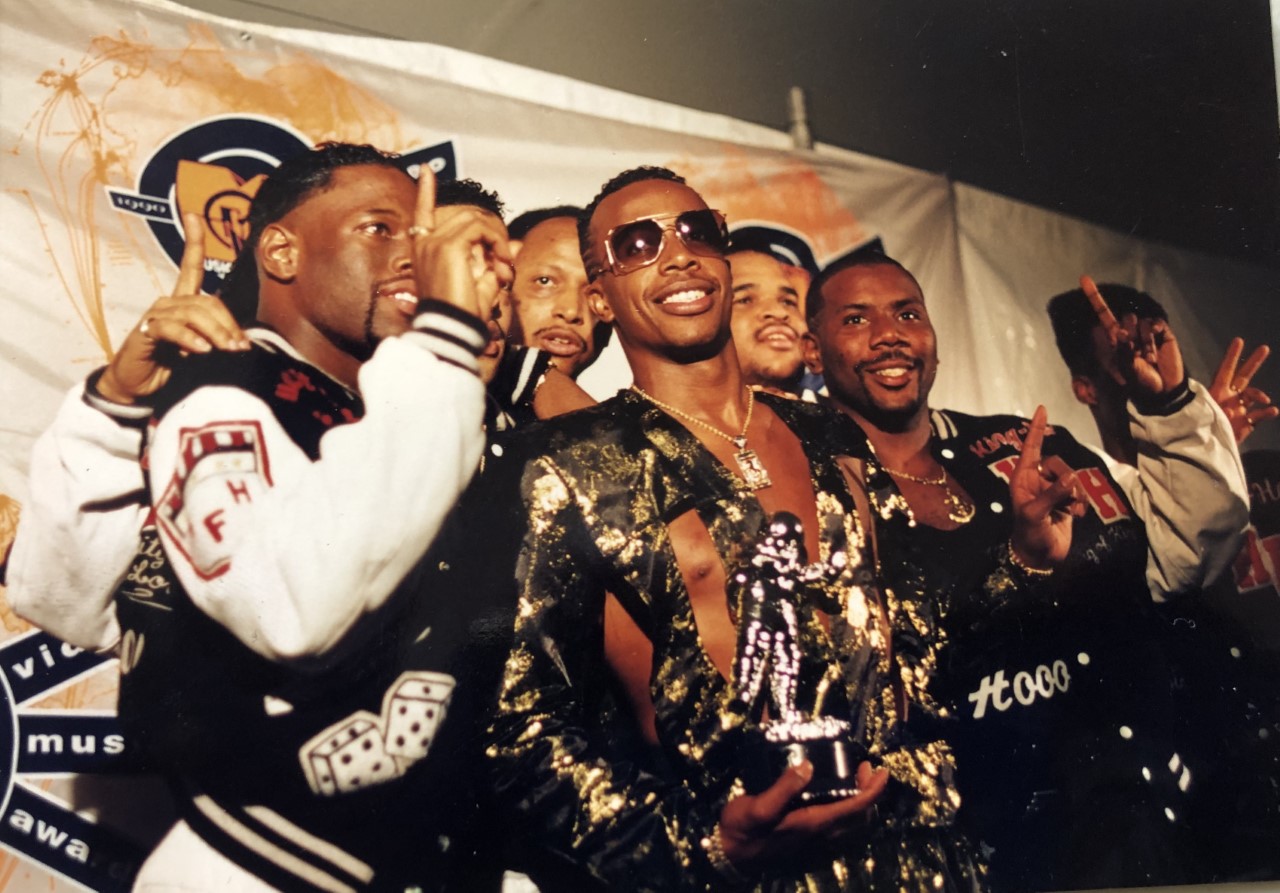
Alonzo Carter (left) with MC Hammer (center) and his entourage at the MTV Awards in 1990.
Alonzo Carter
The next month, San Jose State announced that Brent Brennan was hired as the new head football coach. And what was meant to be a congratulatory call from Carter to Brennan, turned into a chance to join Brennan’s staff.
They had known each other for years. Early in Brennan’s career, he was assigned to recruit in the Oakland area with Cal Poly. He relied on Carter to help find the best talent in 2001.
That led to more than 20 years of friendship, and Brennan and his wife were guests at Carter’s wedding in 2010.
“I’ve seen him change young people’s lives in the city of Oakland forever, and I knew when I got this job here [at SJSU], I just had to have him be a part of it,” Brennan said during an interview on The Ellen DeGeneres Show. “He’s got incredible energy and he connects with people on an incredible level. He is amazing.”
Unlike many football programs, SJSU continued to have a season during the beginning of the coronavirus pandemic in 2020. All of its games were played with no fans.
The Spartans’ 5-7 record in 2019 was not the selling point when recruiting, but Brennan and Carter were able to get recruits to buy into the mission of Beyond Football, which was created to build a foundation for professional success off the field. SJSU was able to navigate through the coronavirus pandemic and finish 7-1 in 2020.
This season, the Spartans had a record of 5-7 (3-5 in the Mountain West) and are in rebuilding mode heading into 2022.
“We give people hope,” Carter said. “You go back into the community and you have a platform, so use it. Go back. Go mentor kids and underprivileged children. Help them. That is what Beyond Football is really about. Then in the same breath, walking into internships with different technology companies, so that when you are done with playing, you walk into a possible six-figure salary.”
Alexis Davis is a senior multimedia journal journalism student from Prince George’s County, Md. She is a sports and culture contributor for The A&T Register, the campus newspaper at North Carolina A&T in Greensboro.

